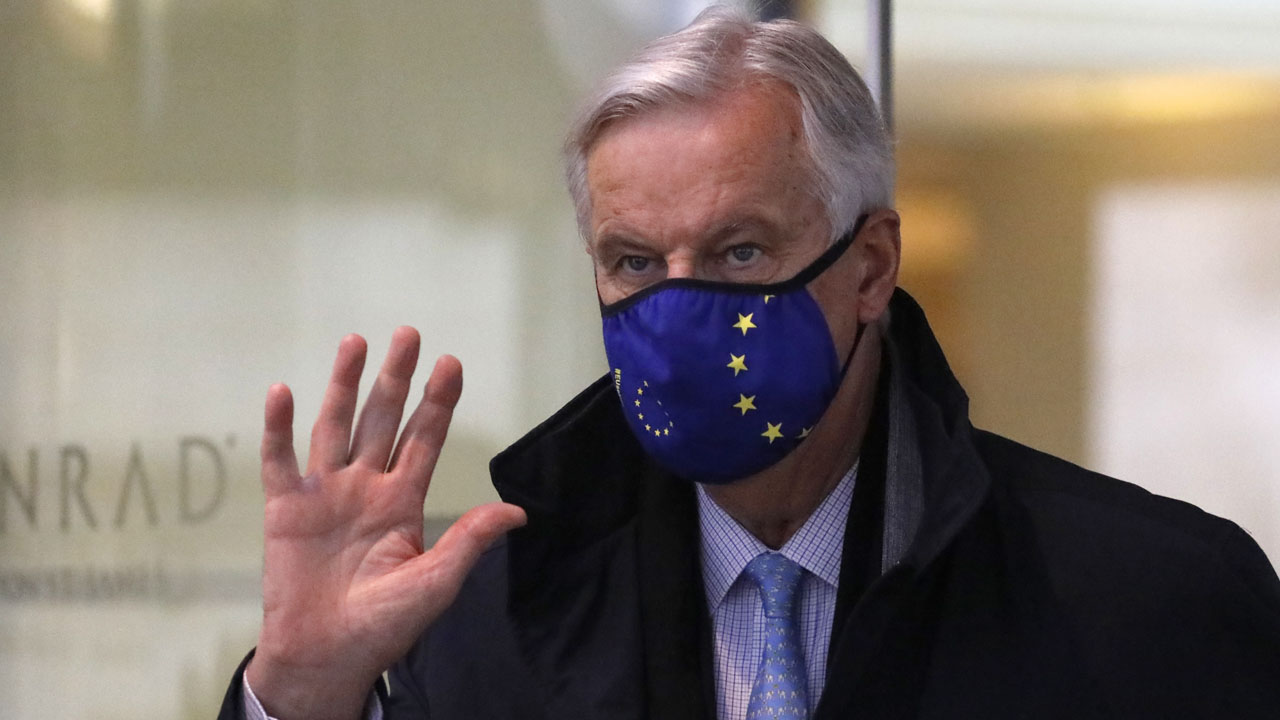
EU and British negotiators are holding face-to-face talks in locked-down Brussels to try to find a last-minute accord on post-Brexit ties, officials said Tuesday, with no sign yet of a breakthrough.
A European Commission spokesman dismissed some British newspaper reports that the two sides had resolved the thorny issue of an EU demand to keep fishing in UK waters.
“We have not yet found a solution on fisheries,” spokesman Daniel Ferrie told journalists.
He said that the EU’s chief negotiator, Michel Barnier, and his British counterpart, David Frost, were meeting in Brussels with their teams.
Their physical presence highlighted the critical juncture of the talks.
Belgium is now under significant restrictions to try to curb a second wave of the coronavirus pandemic, with all workers — including those at the Commission — told to stay away from their offices unless there was no other option.
Britain and the EU have only days left to strike an agreement on their future trading, security and energy relations if they want it to be ratified and in force before January 1, 2021, when a transitional arrangement putting off the effects of Brexit comes to an end.
The search for an accord has become a high-stakes endeavour heightened by the devastating impact of the new coronavirus on the British and EU economies.
Diminished trust
British Prime Minister Boris Johnson also greatly diminished EU trust in September by having his government introduce a bill to breach parts of the Withdrawal Agreement reached late last year that set out key areas caught up in the Brexit divorce.
The bill, which is still passing through the UK parliament, aims to override a section of the Withdrawal Agreement dealing with trade between Northern Ireland and the rest of the United Kingdom.
Under the Withdrawal Agreement treaty, Northern Ireland has a special status keeping it within the orbit of the EU’s single market when it comes to goods. That aims to maintain peace on the island of Ireland by avoiding any north-south border.
The EU, in parallel to the post-Brexit negotiations, last month launched legal action against Britain over the bill.
Ferrie said Tuesday that “to date, the EU has received no reply from the UK” by an end-of-October deadline to respond to the first stage of the legal action, a formal letter demanding explanations.
“We are therefore considering the next steps, including issuing a reasoned opinion,” he said.
That is the next stage in the EU infringement process that could end up with the matter being sent to the European Court of Justice, which could impose penalties on the UK.
‘Not there yet’
In the event of an EU-UK deal on post-Brexit ties, there is an expectation that the controversial British bill will become unnecessary, possibly dumped by Johnson’s government.
But to get there, both sides need to overcome persistent gaps in three areas: the EU’s demand for similar rules to ensure fair competition, a dispute mechanism seen as robust and effective, and, of course, fishing.
On the fishing issue, Ferrie said the EU was intent on “protecting the fishing opportunities of European fishermen and women”.
He dismissed a British proposal on making ownership of fish stocks determined by “zonal attachment”, or how long fish spent in the territorial waters of a country, saying that “cannot be the basis for the solution”.
He added: “Intense negotiations are ongoing now here in Brussels. We’re working hard for that deal. We’re working hard on getting a deal soon. We’re not there yet. So a lot more work remains to be done.”



